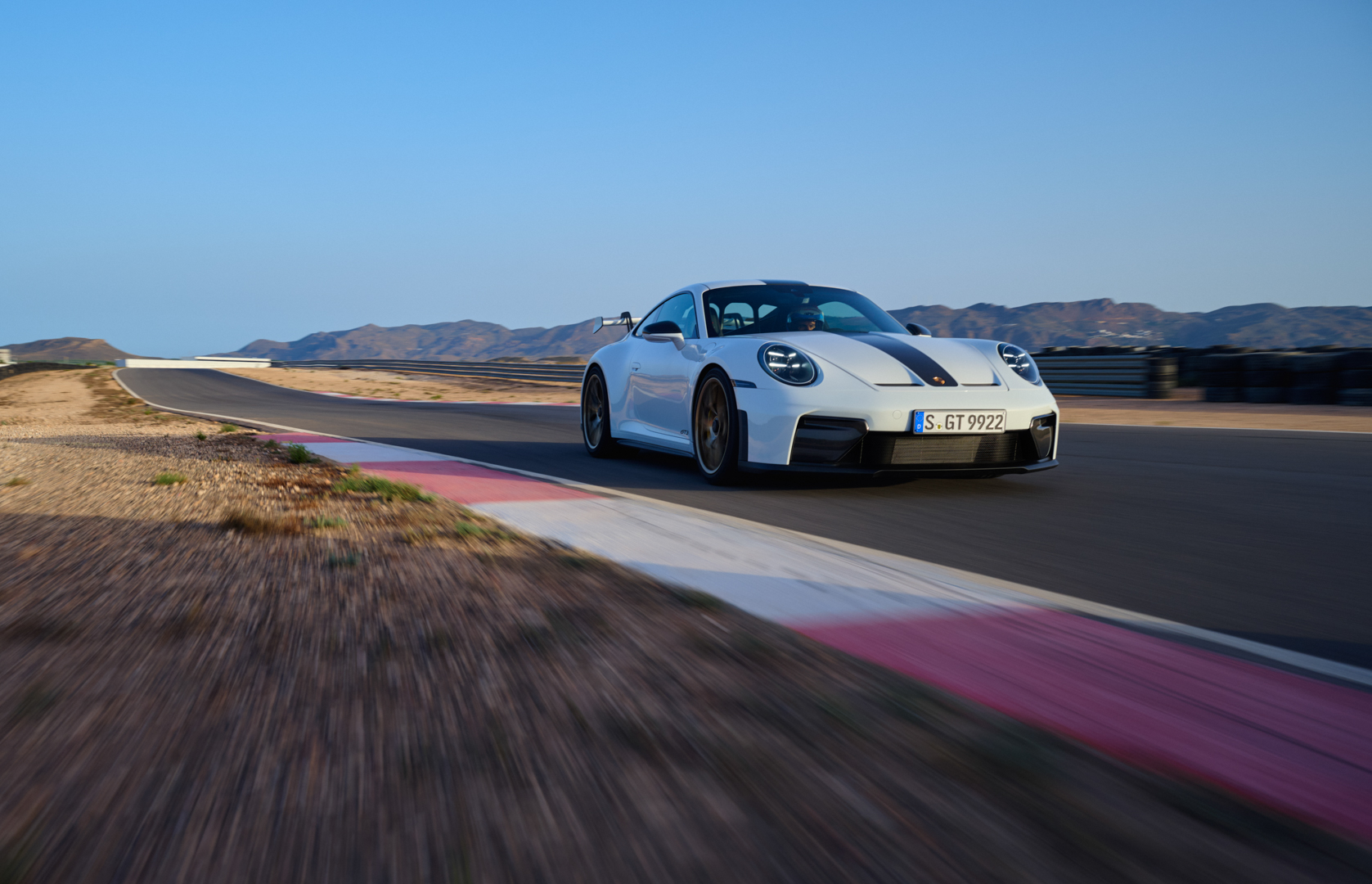

Earlier this month, Porsche pulled the cover off the revised 2025 911 GT3. As exciting as it always is to see a new GT3 for the first time, its reveal came with a tinge of sadness, as it seemed destined to be the last pure GT3, without turbocharging or electrification. Now, Porsche’s GT-line boss Andreas Preuninger has not only confirmed that, but also provided a timeline for its inevitable end.
Preuninger told Autocar that the GT3’s 4.0-liter naturally aspirated flat-six won’t be able to meet the upcoming Euro 7 emissions regulations that are due to take effect at the start of 2027. “I don’t think we can handle Euro 7 without electrification or without turbos. [As it stands] we can sell this car for another two years, but it depends on the markets,” the exec was quoted.
The “markets” point is key; perhaps buyers on this side of the pond will get to enjoy the free-breathing GT3 for a little longer. The real question is what Porsche will do in Europe and elsewhere to replace the GT3’s beloved engine. There are two obvious courses of action: Porsche can either electrify the 911 GT3 with a system similar to the 911 GTS Hybrid’s, or it can swap in a new, turbocharged mill. It seems Preuninger is leaning toward the latter. While he admits that the 911 GTS Hybrid is probably quicker than the GT3 off the line and that it’s a great powertrain in its own right, it isn’t appropriate for the GT3.

“The system itself is the right approach to put electrification in a sports car, but there’s a reason we don’t use that on a GT3. We would have had to use the PDK II—the gearbox we have in the standard Carrera, which is more than 20kg heavier than our ‘Sport’ PDK,'” he told Autocar.
Preuninger would prefer to keep the GT3 as light and pure as possible. And since Porsche’s current hybrid system is too heavy for a GT car, that leaves turbocharging. But that wouldn’t be the end of the world. The 911 GT2 was always turbocharged, and no one ever complained about any GT2 generation being dull to drive. Additionally, Porsche has already proven capable of making turbocharged engines feel close to, if not indistinguishable from naturally aspirated ones with the new Carreras. So I have little doubt that if Preuninger and co. must add forced induction to the next-gen 911 GT3, it’ll still be thrilling. It could also still offer a manual, while a hybrid couldn’t. Will it be as thrilling as the current 4.0-liter, though? Maybe not, but nothing good lasts forever.
Got tips? Send ’em to tips@thedrive.com